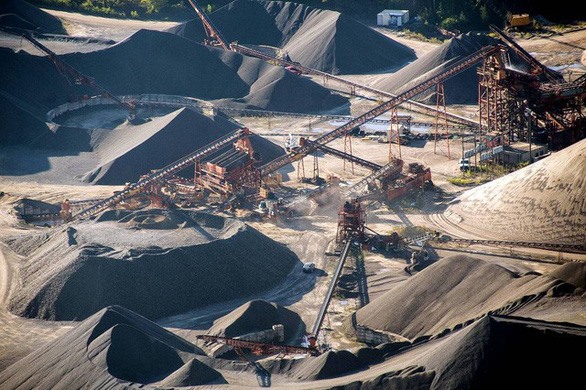 Society
Society

Many transport projects as part of the second express highway in the Cửu Long (Mekong) Delta may not be completed by 2020 because of surging prices and a scarcity of construction sand.
 |
| Many transport projects as part of the second express highway in the Cửu Long (Mekong) Delta may not be completed by 2020 because of surging prices and a scarcity of construction sand.— Photo tuoitre.vn |
MEKONG DELTA — Many transport projects as part of the second express highway in the Cửu Long (Mekong) Delta may not be completed by 2020 because of surging prices and a scarcity of construction sand.
The 51km Lộ Tẻ - Rạch Sỏi road and the Vàm Cống Bridge are expected to create a western corridor in the delta, linking south-eastern provinces, HCM City and the delta.
While the bridge is nearly finished and is expected to be completed by mid-year, the road work is only 61 per cent complete after 2.5 years of construction. The delay has been due to sand prices rising by two or three times.
A representative of a contractor for the project said there was a scarcity of sand. Foundation sand was priced at VNĐ120,000 (US$5.2) per cubic metre, but is now VNĐ200,000 ($8.7) per cubic metre and is expected to continue to rise.
Kim Hyung Seok, a representative for the South Korean contractor and construction director of the Lộ Tẻ - Rạch Sỏi Road project, said the project needed VNĐ145 billion (US$6.25 million) fund to pay sub-contractors.
He is working with the main investor, the Cửu Long Corporation for Investment Development and Project Management for Infrastructure and the main contractor for the Lộ Tẻ - Rạch Sỏi project, and the Ministry of Transportation to provide funds by March to meet the deadline.
Nguyễn Ngọc Toan, deputy general director of the Cửu Long Corporation for Investment, Development and Project Management for Infrastructure, said the road foundation needed a large amount of sand as well as more investment. Under such conditions, the work will be difficult to be completed by the first quarter of 2020.
The contractors of these works said the rising sand prices had caused construction costs to balloon.
The huge demand for sand and its rising prices have seriously affected many major construction works such as the Trung Lương – Mỹ Thuận Highway in Tiền Giang Province, a section of National Highway No 60 in Bến Tre Province and the Lộ Tẻ - Rạch Sỏi Road in Kiên Giang Province.
National Road No 60 and a road from Rạch Miễu Bridge in Bến Tre Province to Cổ Chiên Bridge in Vĩnh Long Province face a similar fate.
Every day, their construction units require more than 700cu.m of sand but only 100cu.m are provided.
The Government wants to limit sand extraction as companies have been overexploiting sand and damaging the environment.
Deputy Minister of Transport Nguyễn Nhật said the supply only met 20 per cent of the demand and urged the Government to instruct ministries, industries and localities to open new sand mines or increase mining to meet the demand in the delta.
Transport infrastructure in the Mekong Delta has recently seen huge investments, but the region still faces connectivity challenges as many works have stalled or been delayed.
The ministry plans to complete 46 transport works from now through 2020, of which 39 have been completed, at a total cost of VNĐ76.5 trillion ($3.35 billion), mainly from Government bonds.
Another 19 road projects costing VNĐ66 trillion ($2.9 billion) are underway, of which five are using capital from the State budget, three using capital from government bonds, and five others with capital from Official Development Assistance (ODA). The remaining six projects are being developed under the BOT form.
Completed works include the Cần Thơ, Hàm Luông, Cổ Chiên, Mỹ Lợi, and Năm Căn bridges, and HCM City – Trung Lương Expressway.
However, the Mekong Delta only has the 40km-long HCM City- Trung Lương Expressway to serve 30 million people. – VNS




